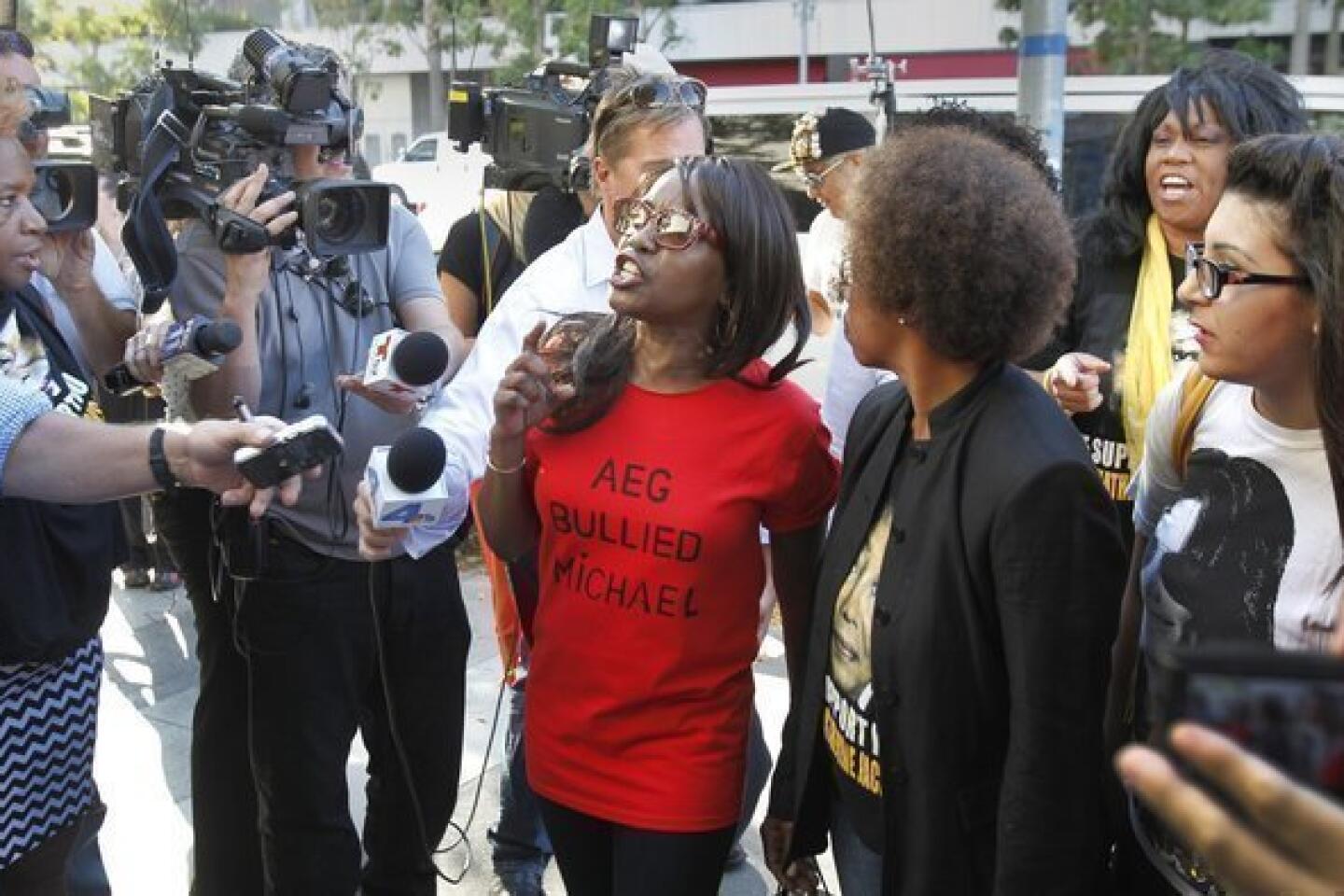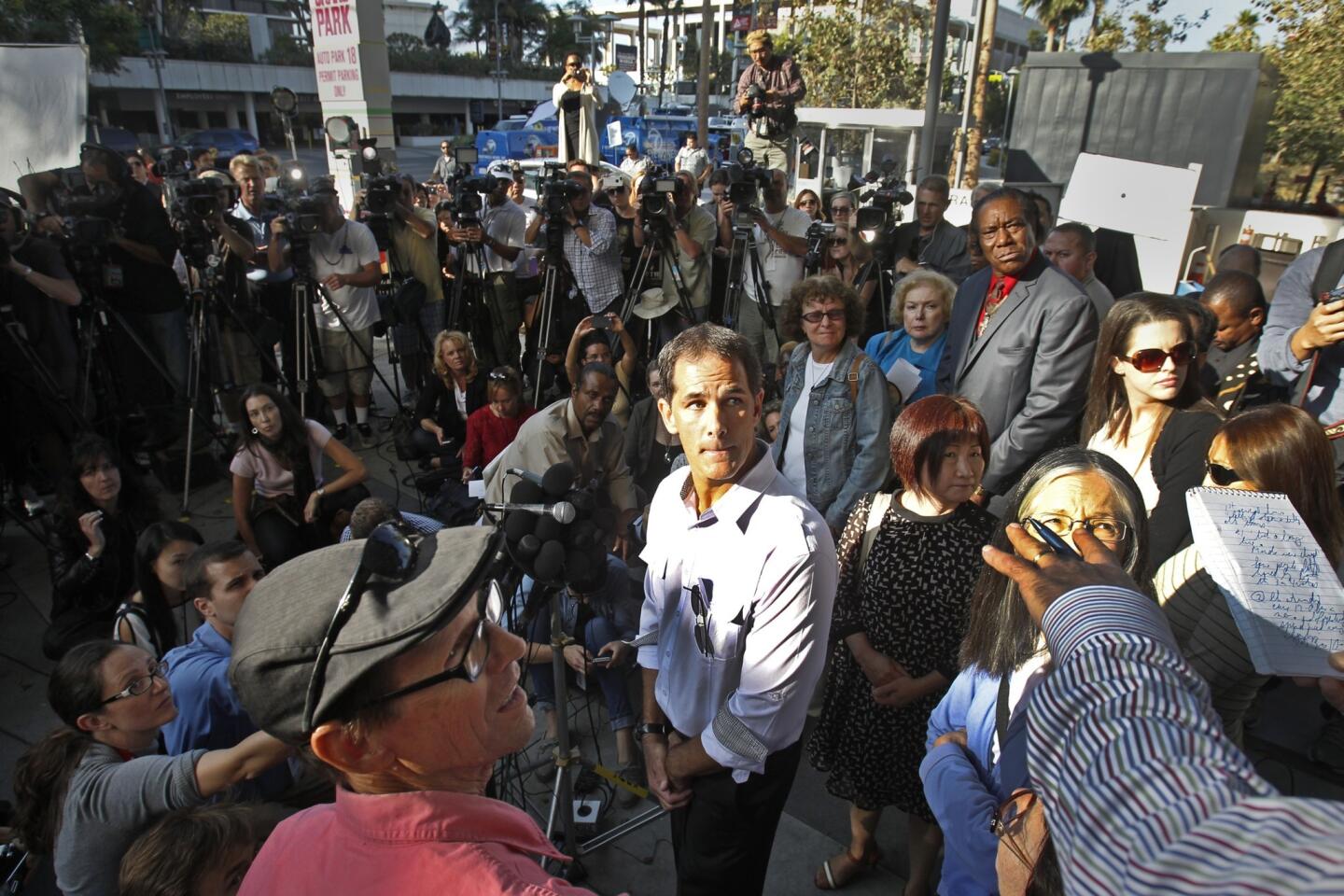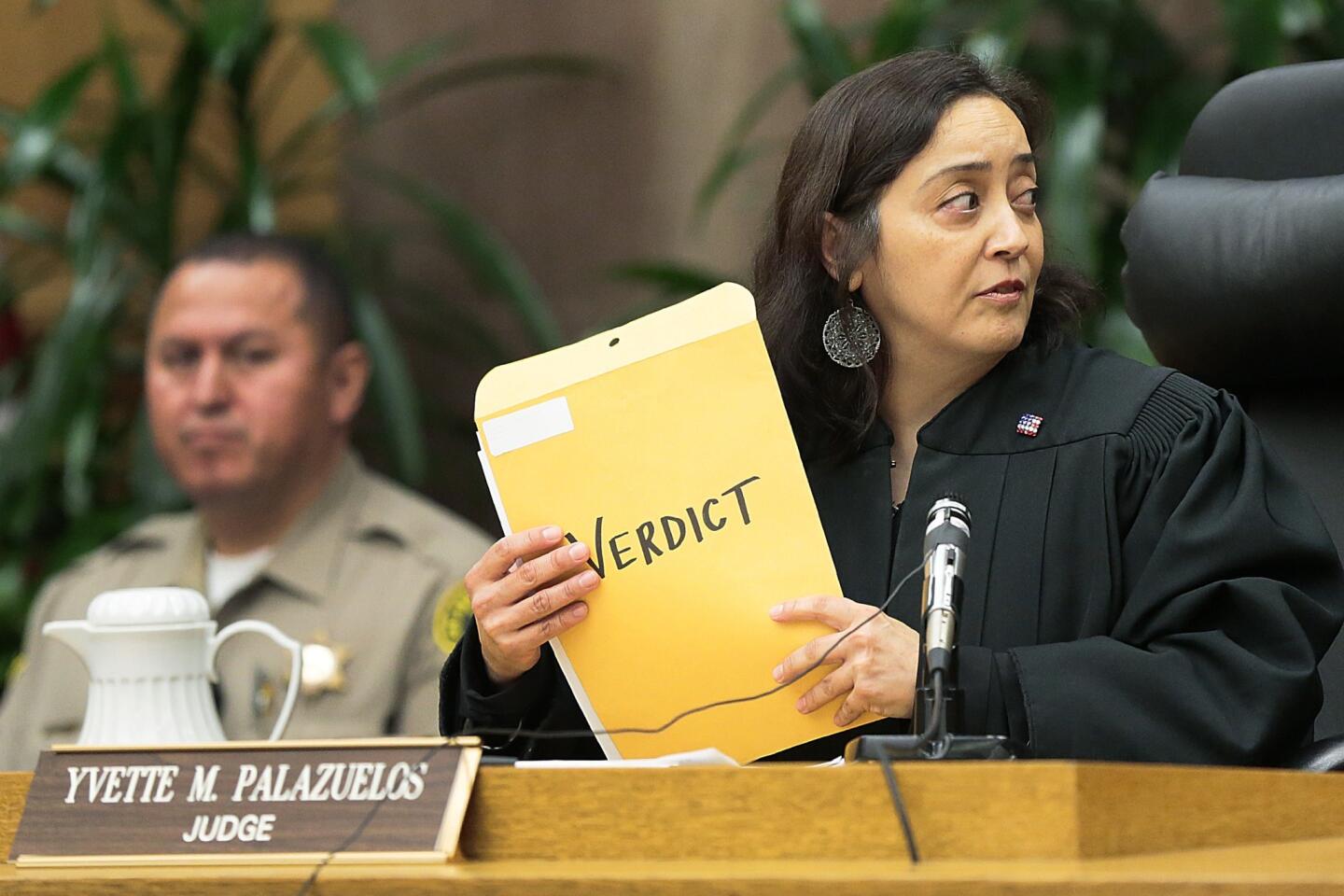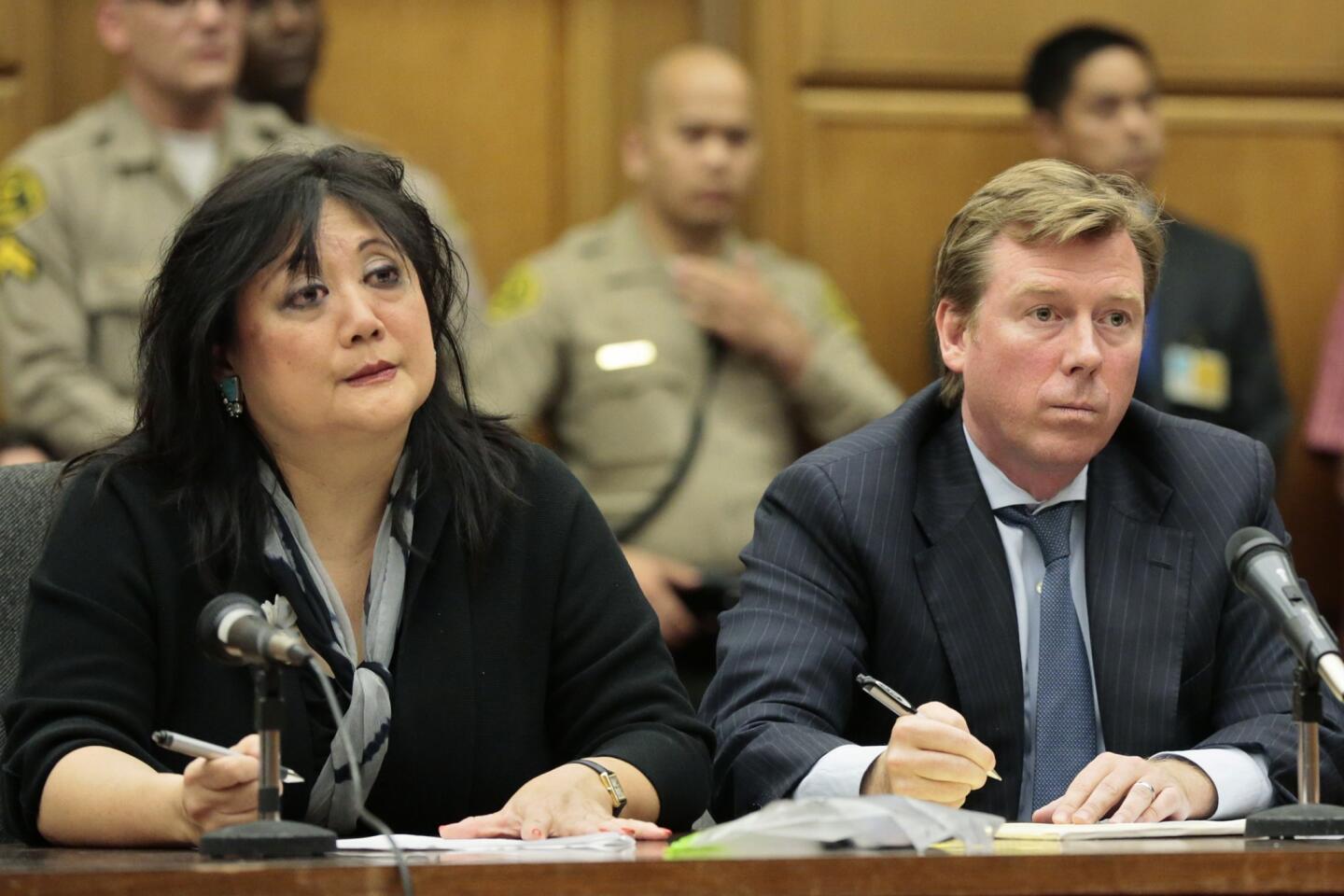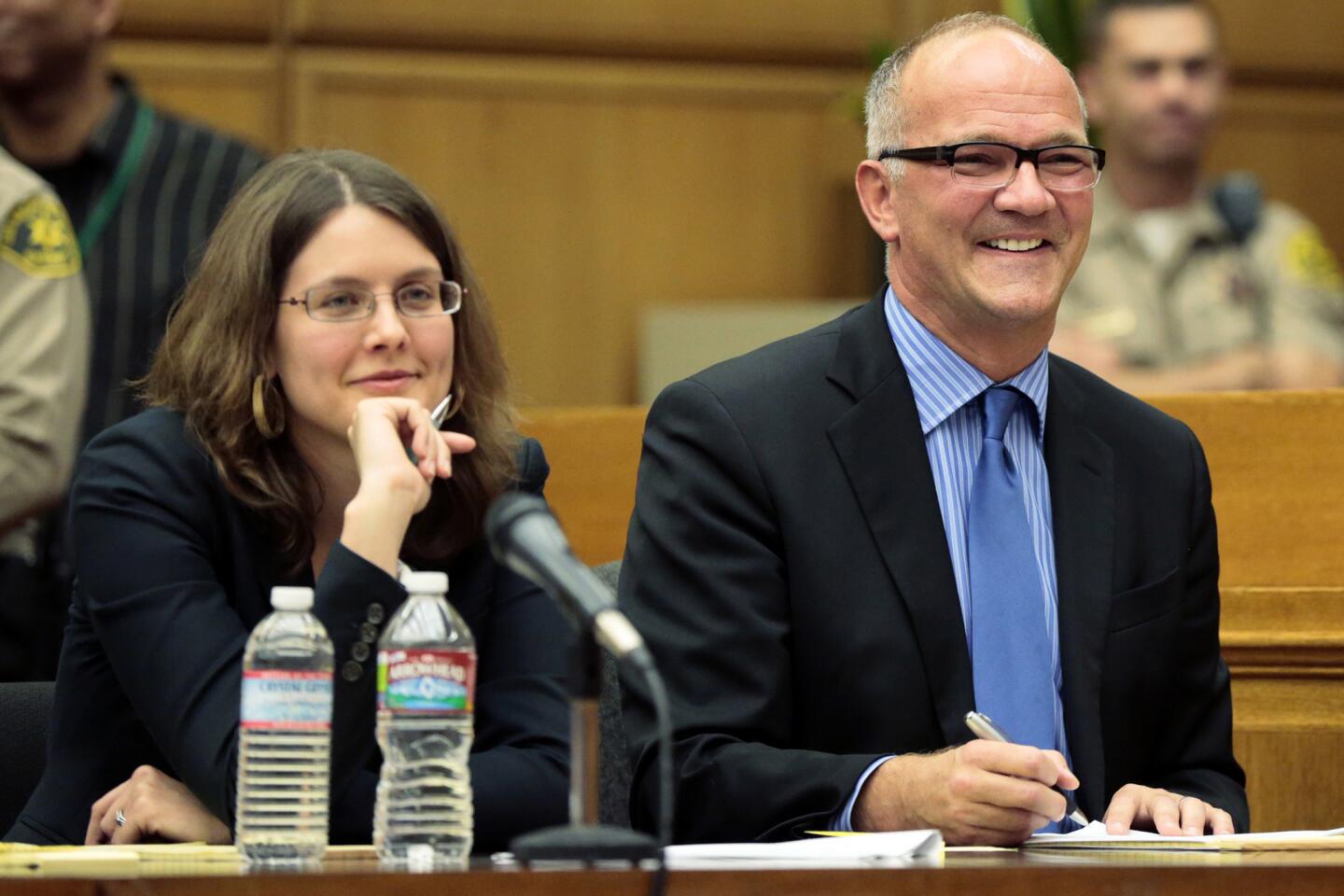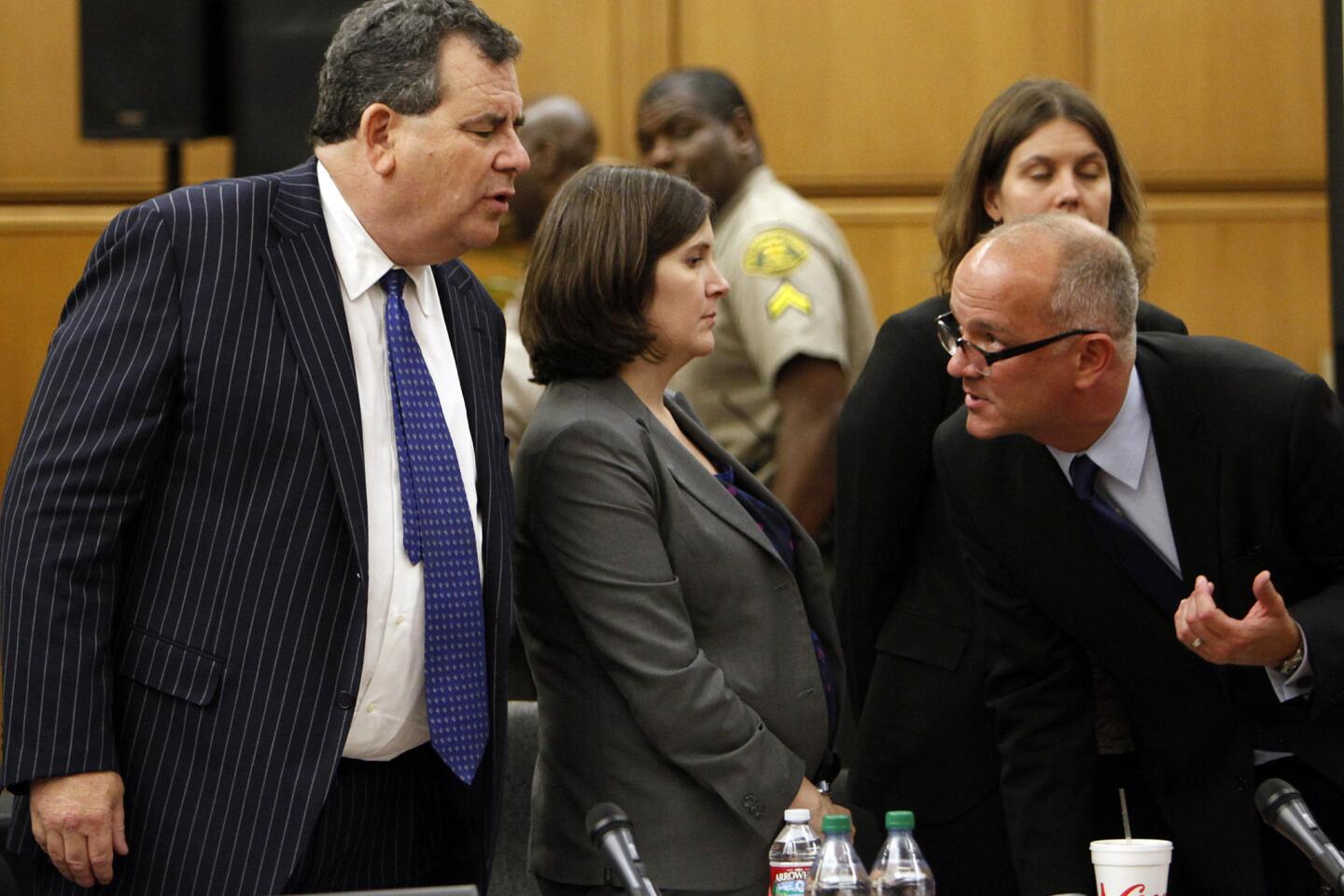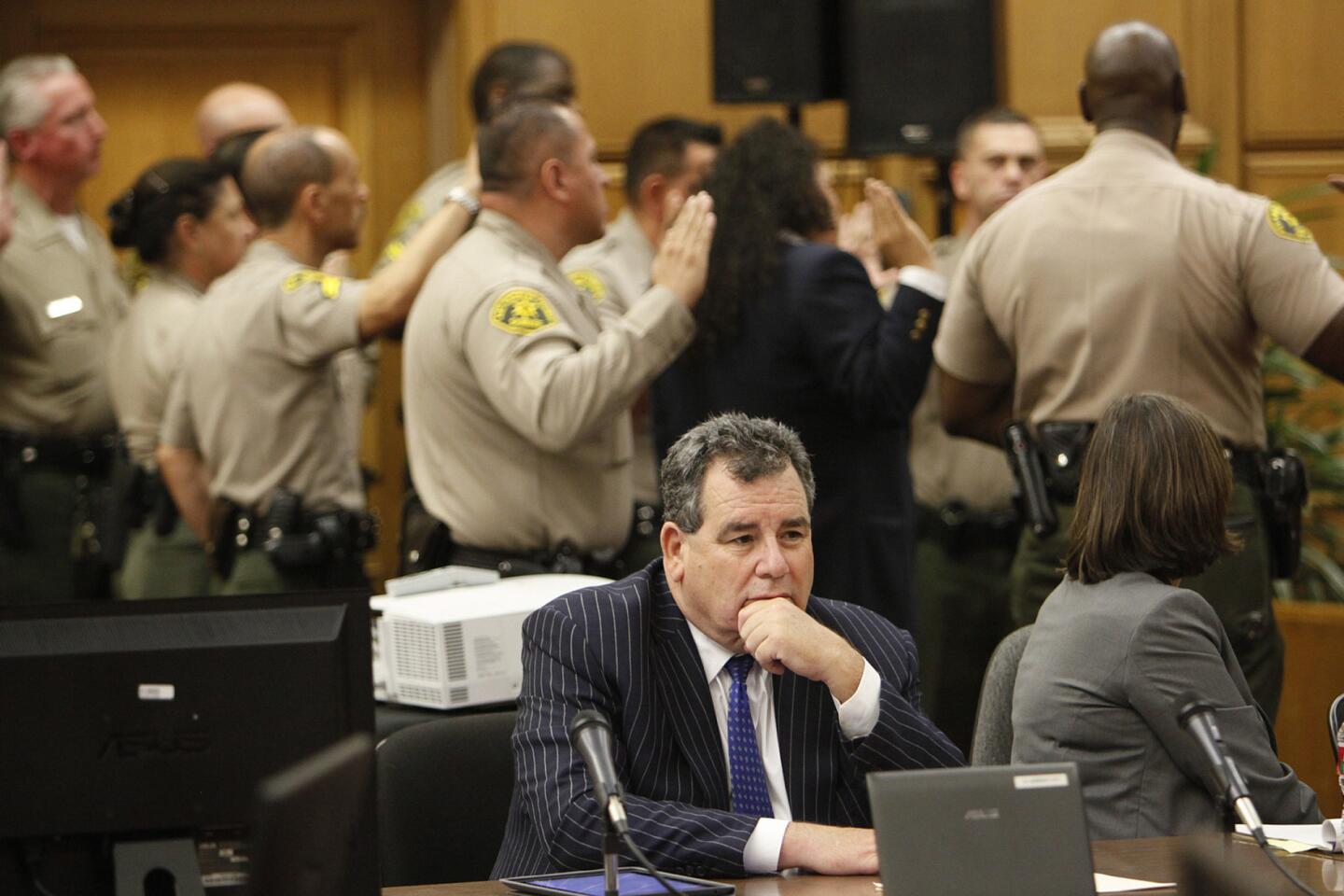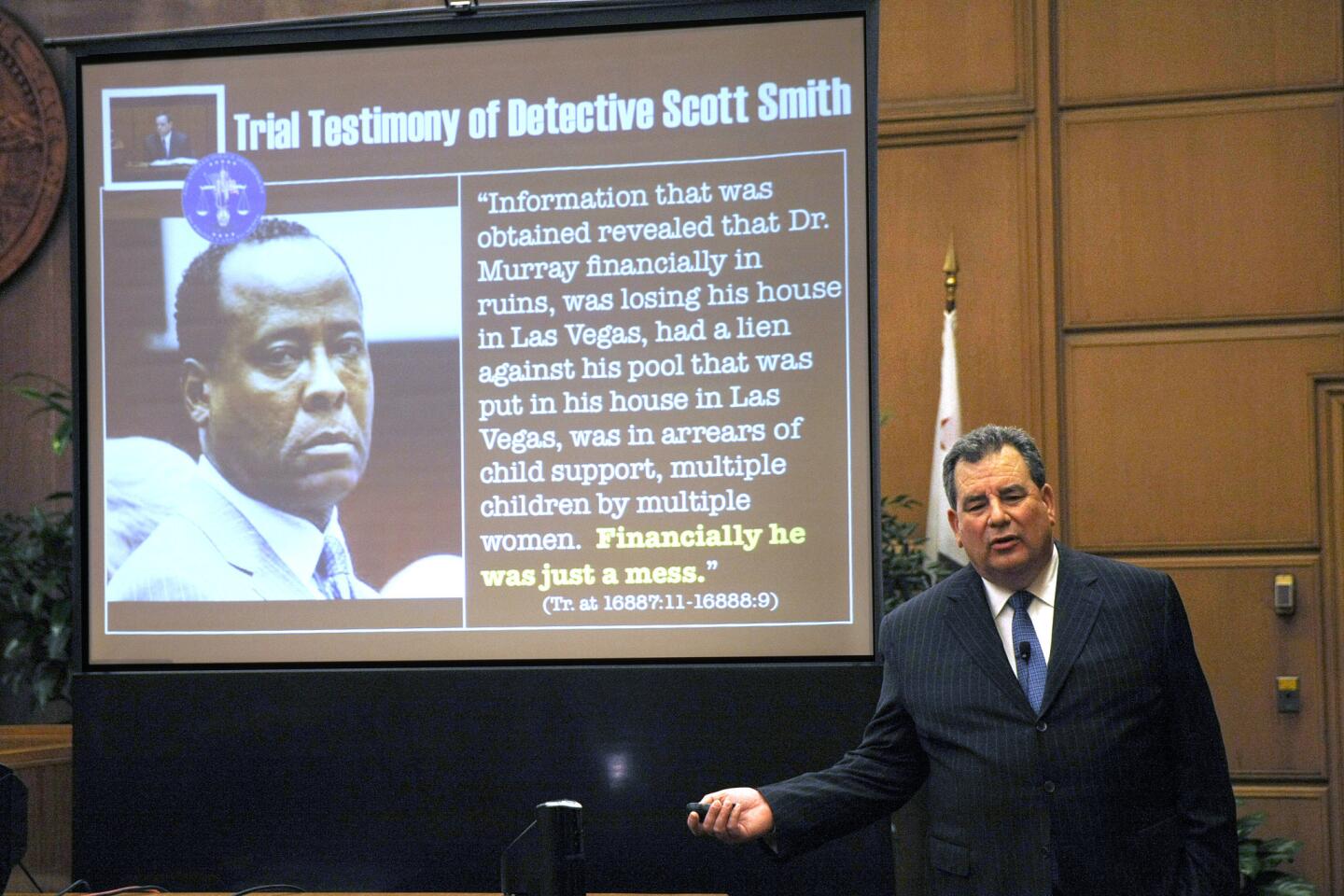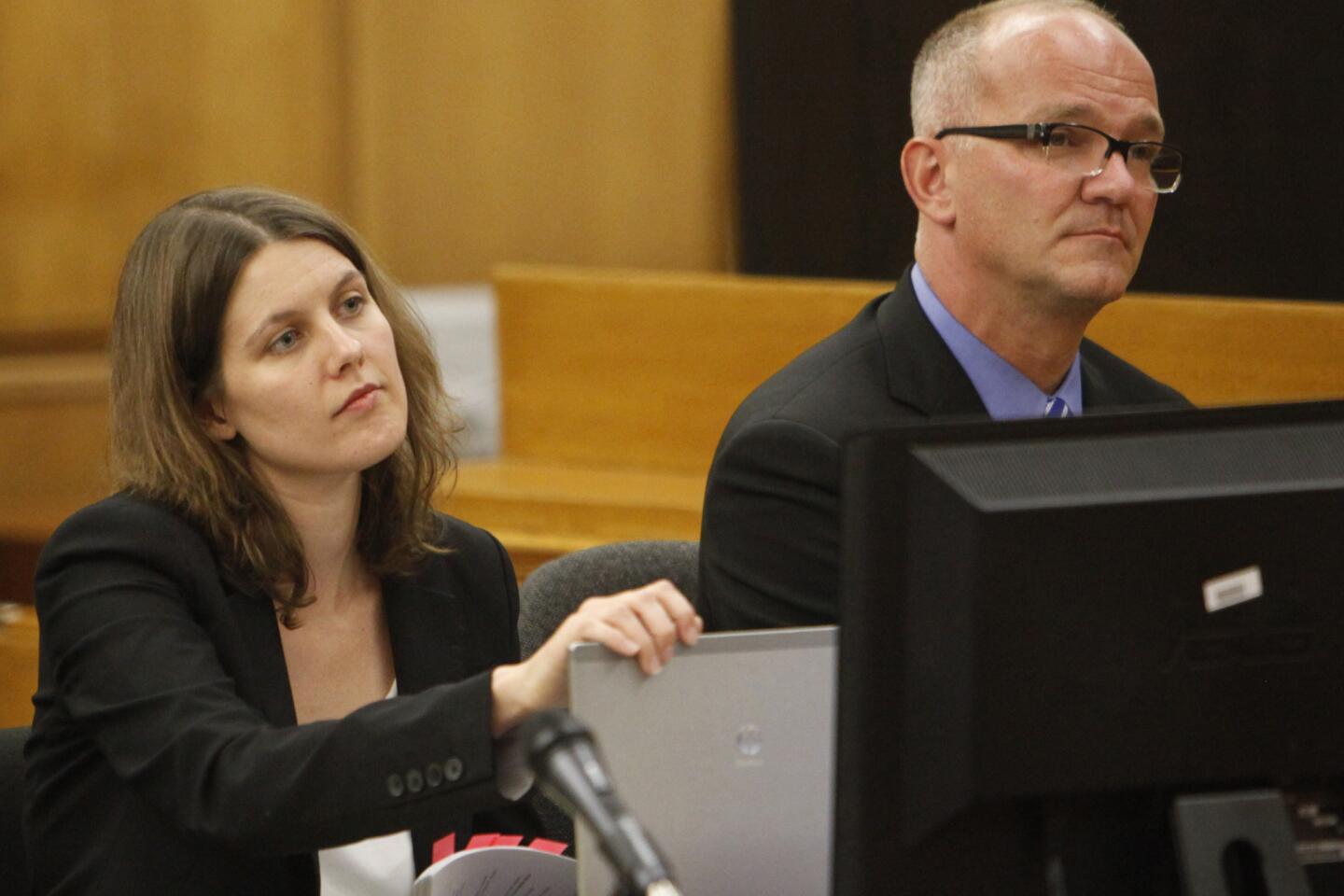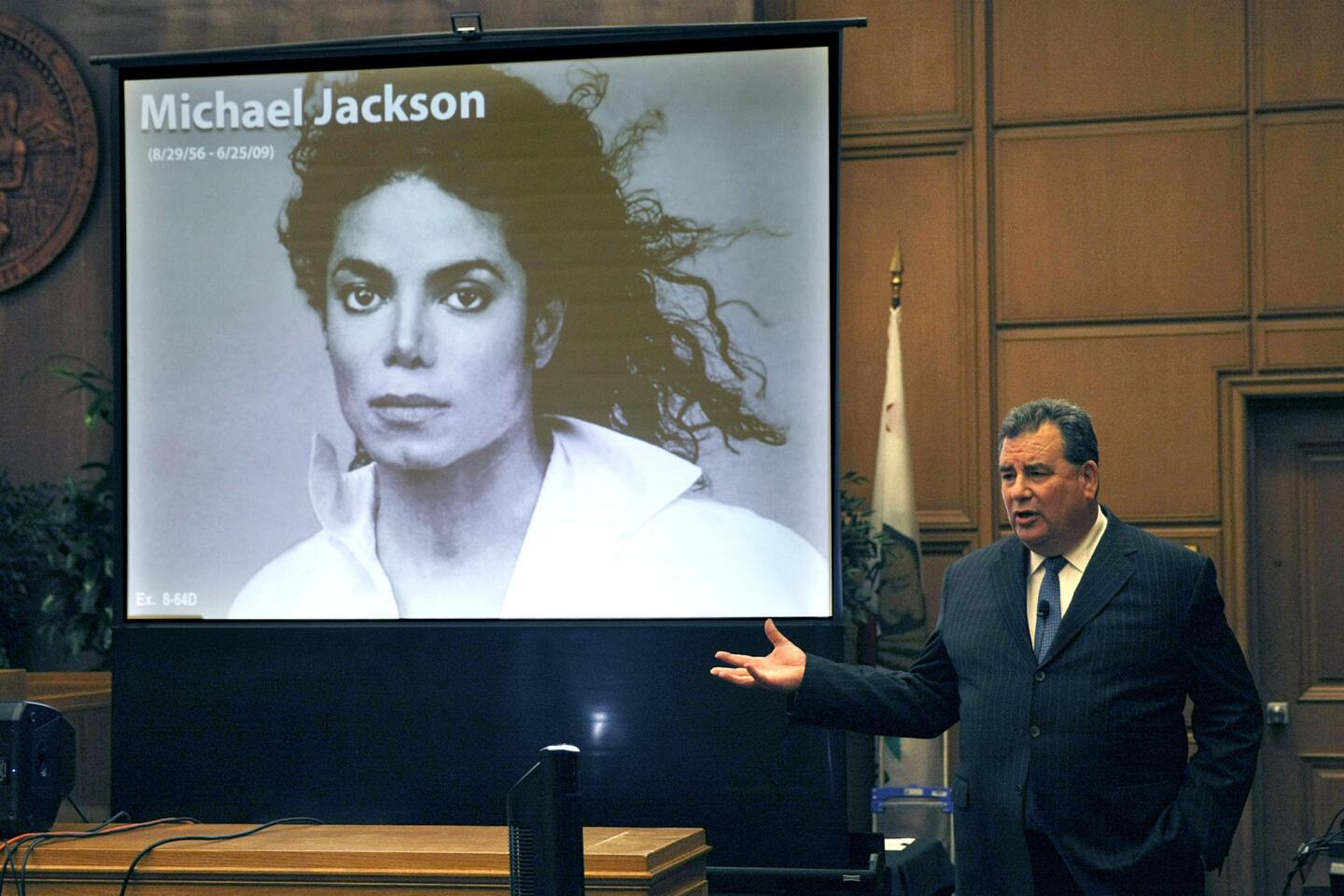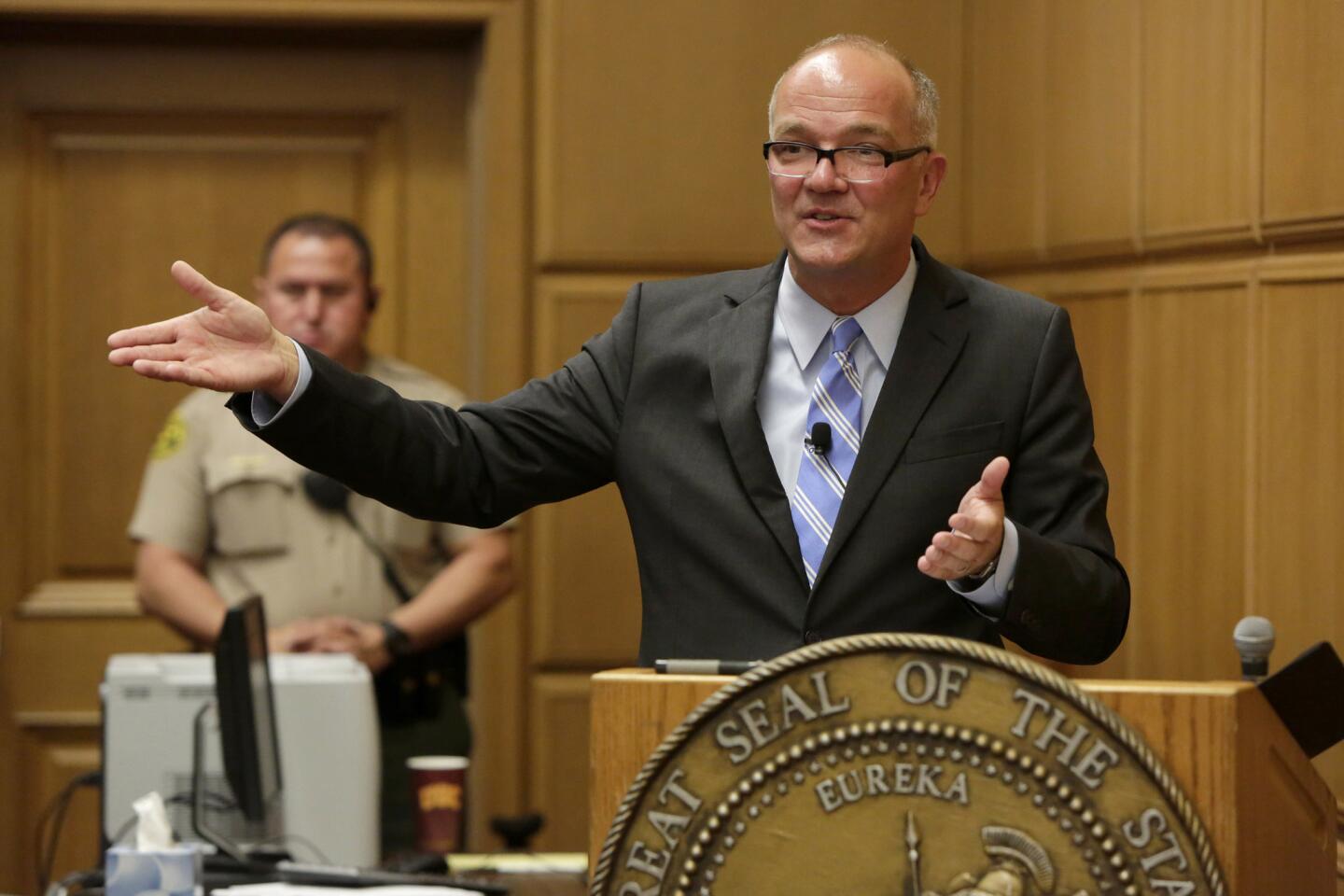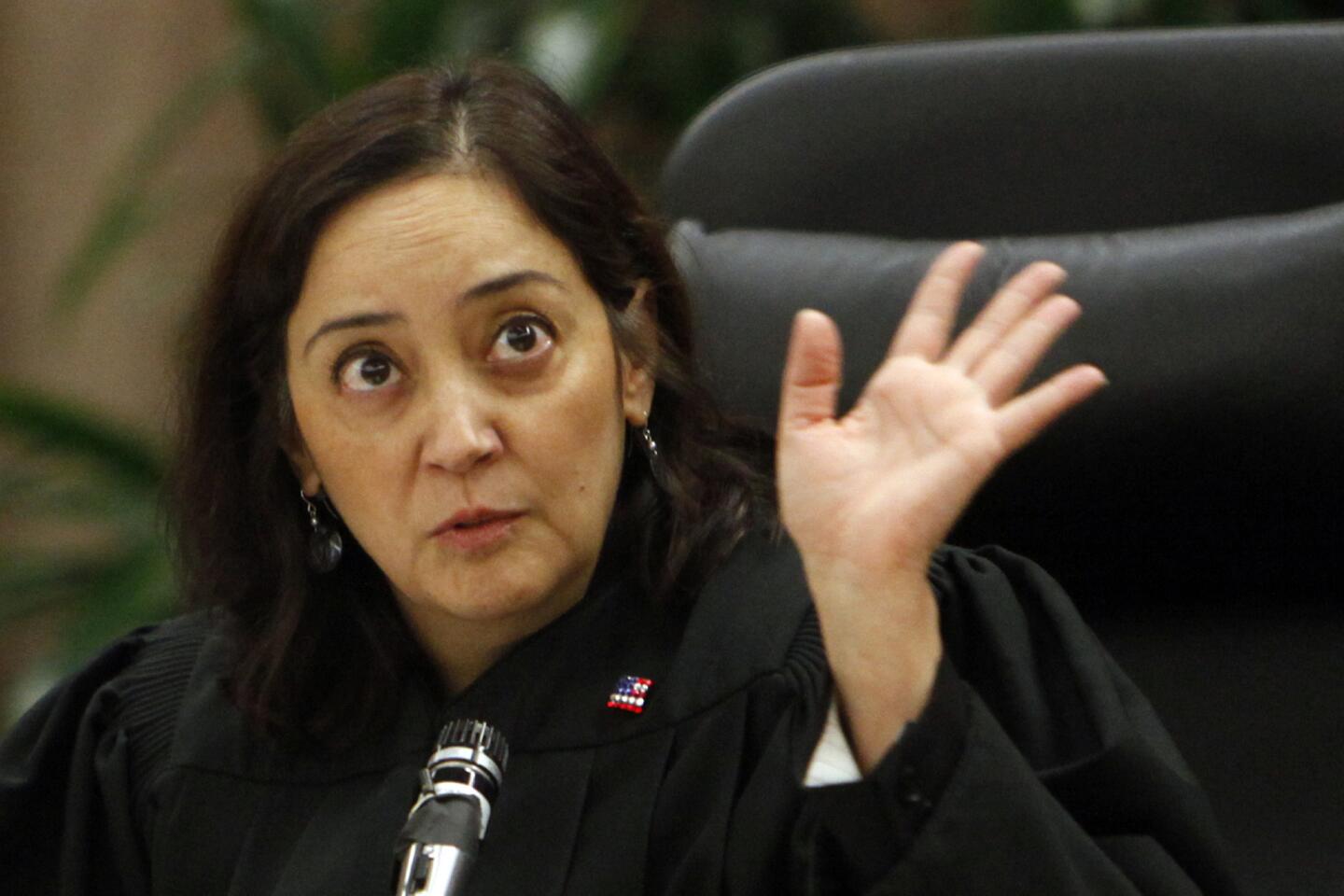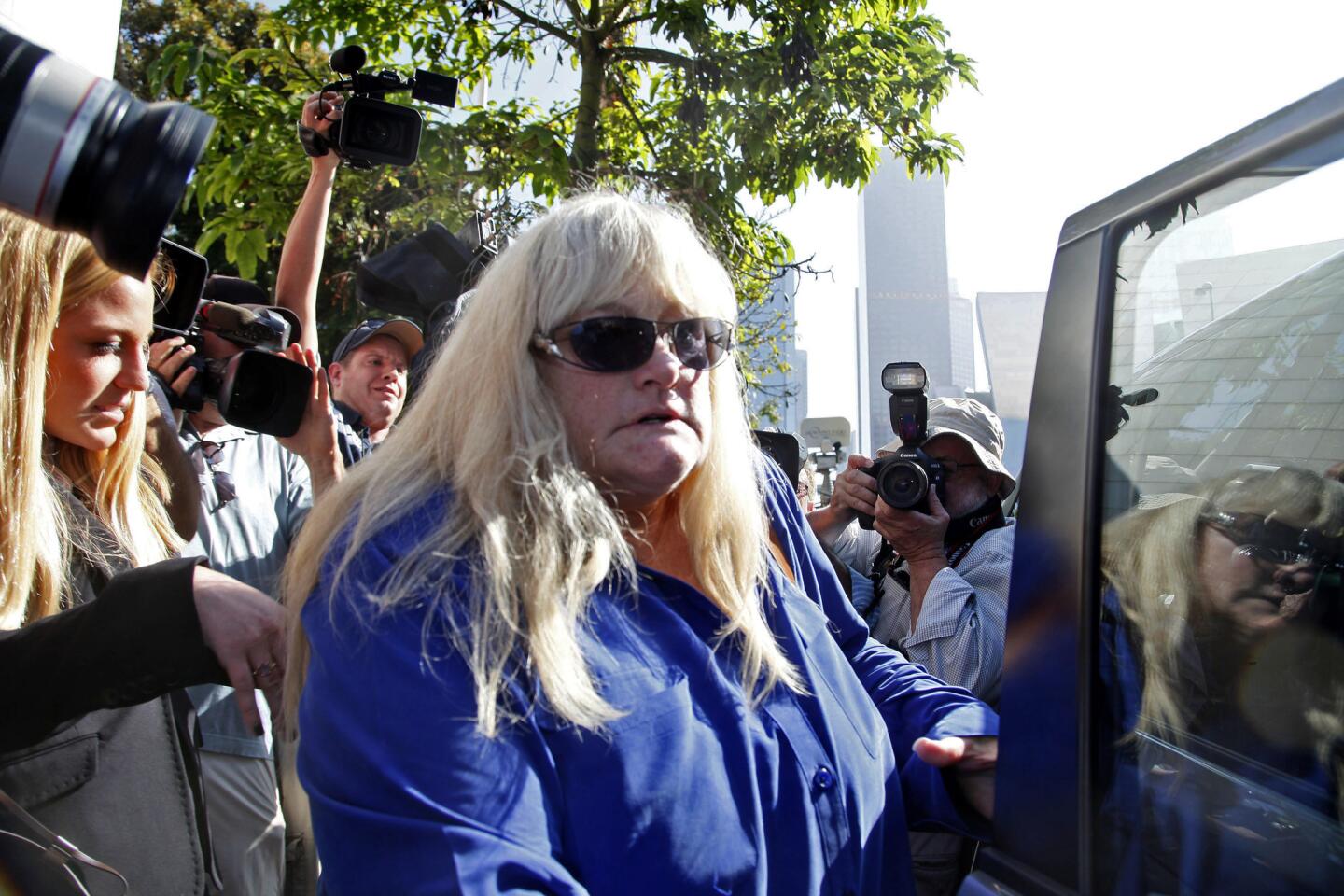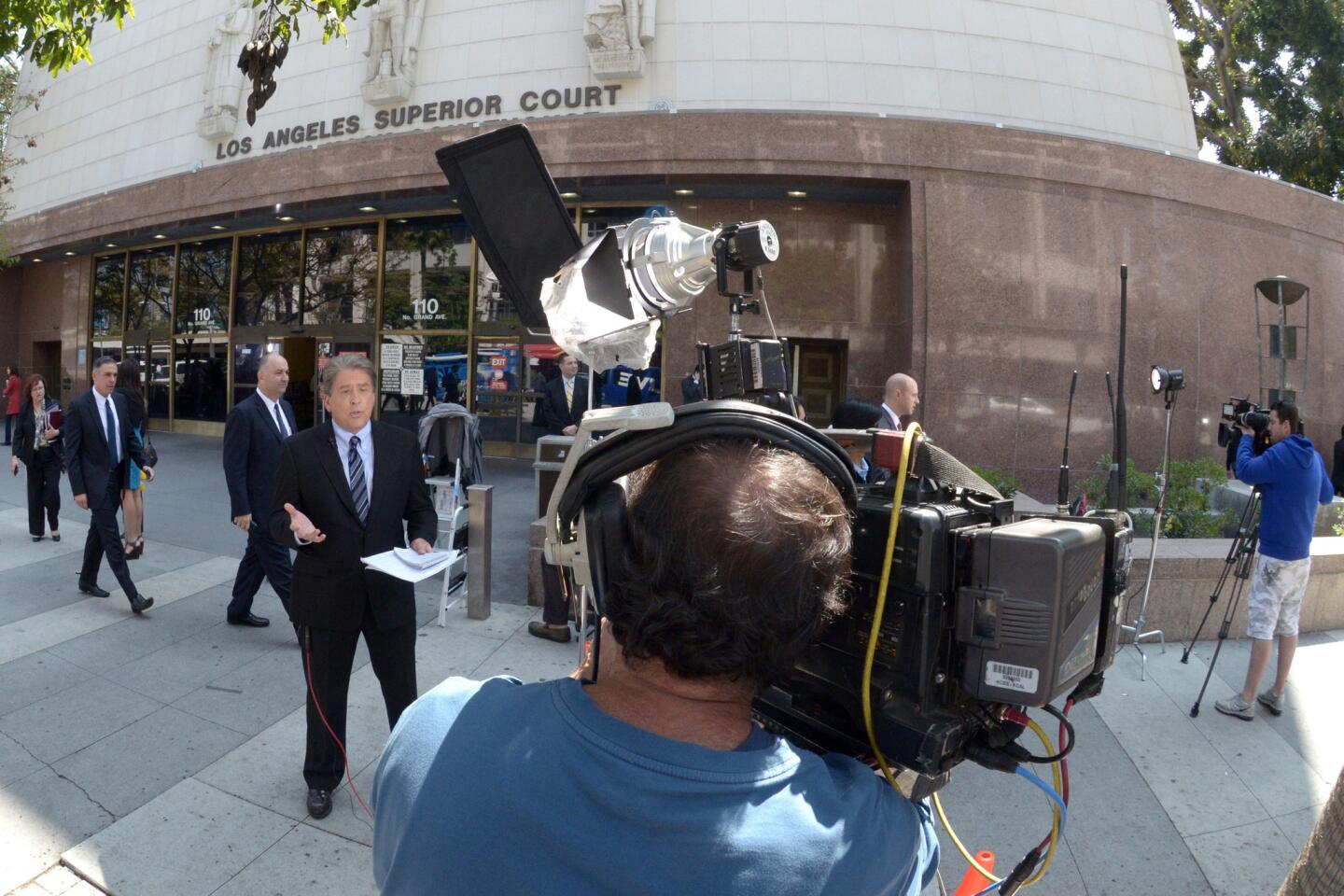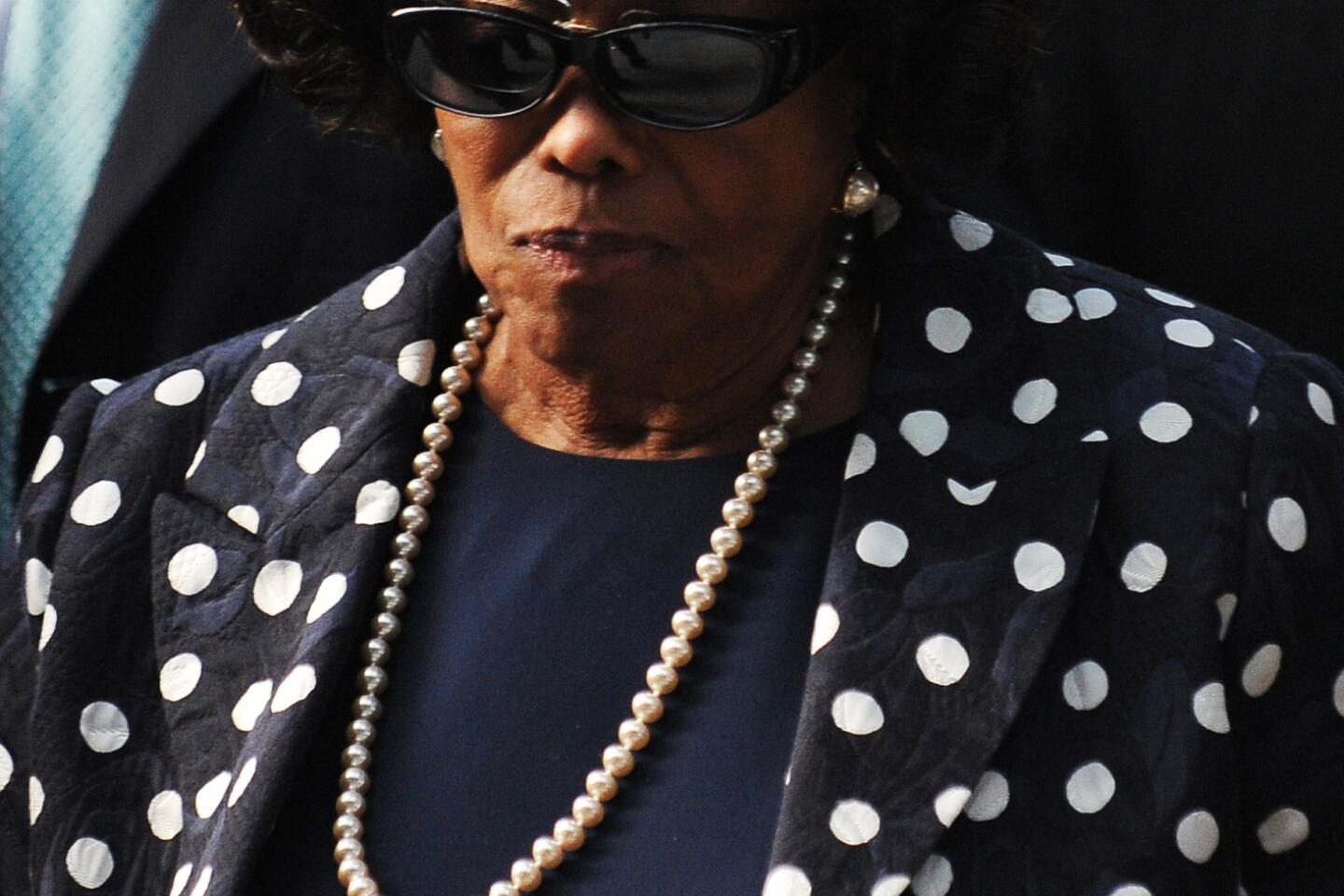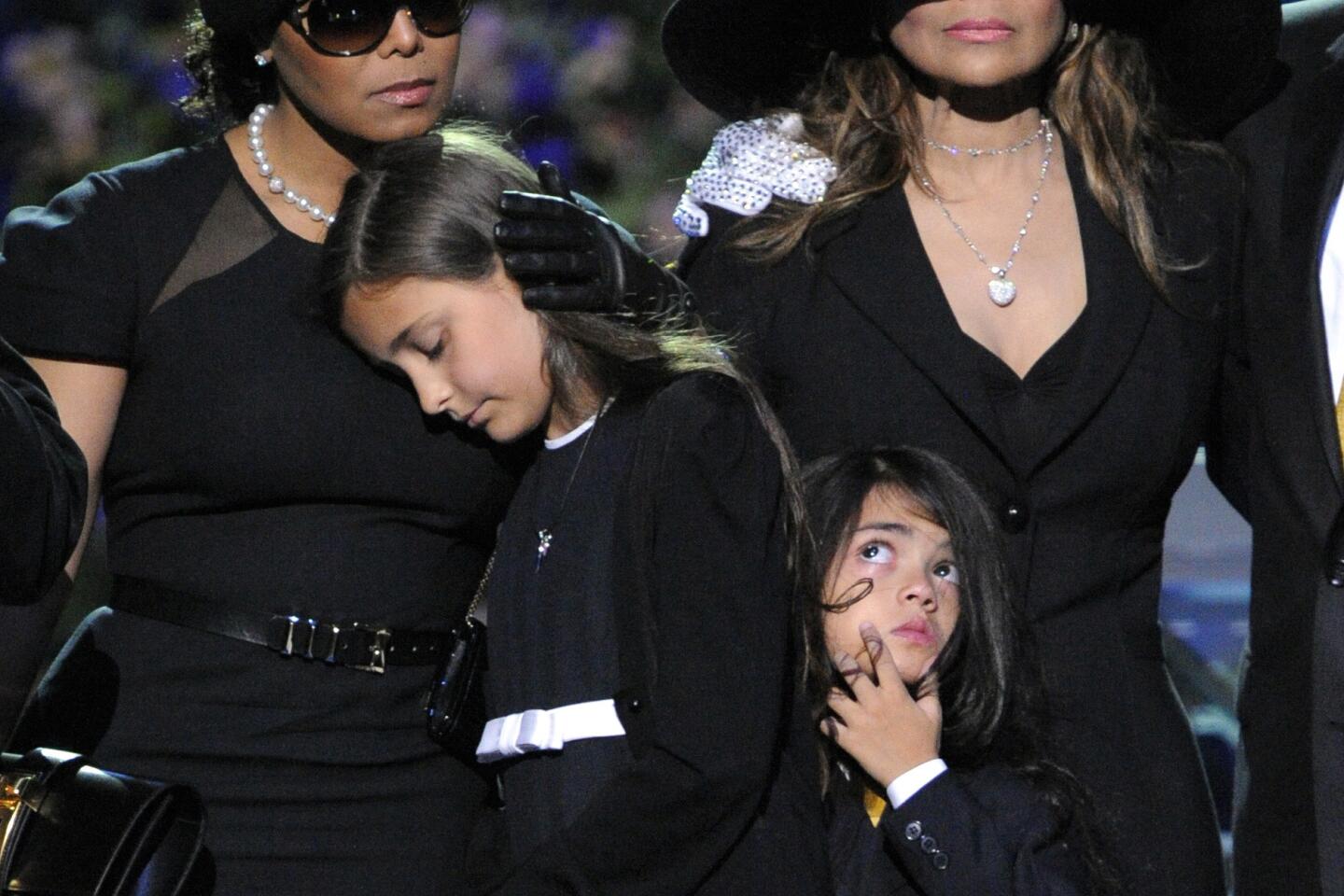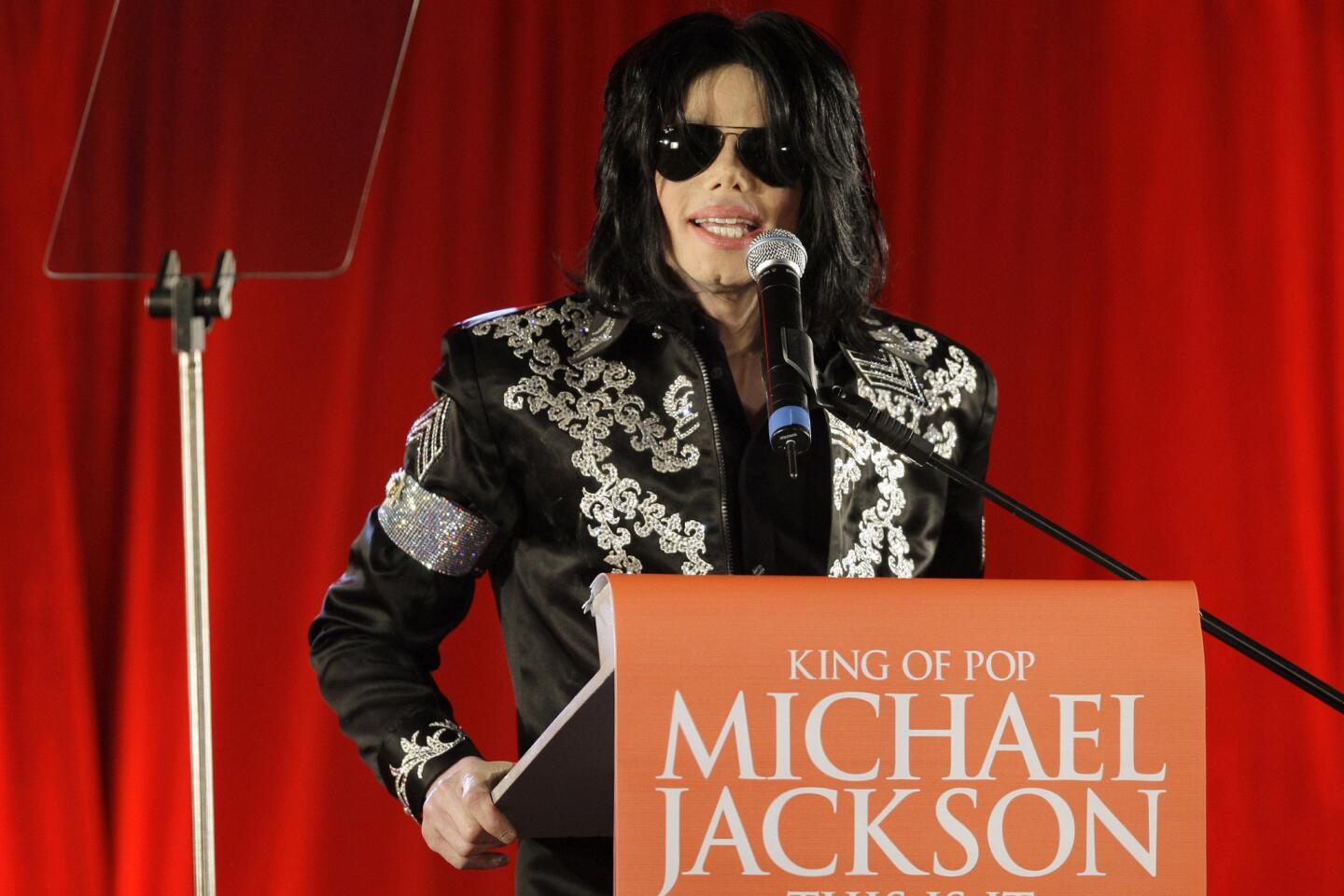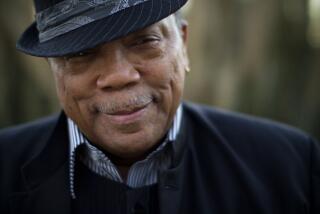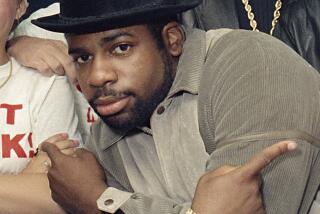Michael Jackson-AEG verdict: Jury foreman says ‘no winners in this’
A Los Angeles jury on Wednesday found that concert promoter AEG Live was not liable for the death of Michael Jackson, capping a marathon civil trial that laid bare the troubled singer’s health problems, struggles with drugs and fateful attempt at a comeback tour.
The verdict came four years after Jackson received a fatal dose of an anesthetic from his doctor as he was about to launch a concert series produced by AEG aimed at reviving his stalled career.
Jackson’s family filed the lawsuit, claiming that AEG’s was to blame for the King of Pop’s death because it was negligent in the hiring and supervising of the doctor, Conrad Murray. AEG argued that Jackson had a history of abusing drugs, including the anesthetic, and was responsible for his own death.
The outcome marked a decisive victory for AEG. The jury was left with five questions that it had to answer affirmatively in order to find AEG liable. The jury agreed with the first question, that AEG hired Murray. But it rejected the second question, which asked whether Murray was unfit or incompetent. That finding made the rest of the questionnaire moot.
The jury foreman, Gregg Barden, said the five-month trial was exhausting and that the three days of deliberations were “extremely stressful.”
“We reached a verdict we understand that not everybody is going to agree with,” he said. “There are really no winners in this. Somebody had to die for us to be here....it was really a tragic situation.”
Barden said the jury was somewhat confused by the question about Murray’s competence but understood its ramifications.
“We felt he was competent,” he said. “That doesn’t mean we felt he was ethical. If ethical was in the question, it might have been a different outcome.”
Another juror, Kevin Smith, said he didn’t believe AEG could have done anything about Jackson’s problems.
The stakes for both the Jackson and AEG were high. The Jackson family’s financial expert testified that Jackson would have earned at least $1.2 billion from merchandise, new music, tours, endorsement and a Las Vegas show had he lived.
The Jacksons wanted AEG to pay his children, Prince, Paris and Blanket, $85 million each and his mother, Katherine, at least $35 million.
Katherine Jackson stared ahead stoically as the verdict was read. She was quickly whisked into another courtroom, where she exited at the back of the downtown L.A. courthouse.
Several Jackson fans, who had been a constant presence during the trial, responded to the verdict with their own coordinated protest. They took off their T-shirts to reveal other shirts underneath bearing slogans such as “AEG bullies Michael.”
Jackson family attorney Brian Panish didn’t immediately indicate whether he would appeal the ruling. “We are disappointed by the verdict but respect the jury system,” he said.
AEG released a statement expressing vindication. “We lost one of the world’s greatest musical geniuses, but I am relieved and deeply grateful that the jury recognized that neither I, nor anyone else at AEG Live, played any part in Michael’s tragic death,” said Randy Phillips, an AEG executive who was named in the lawsuit.
The jury rejected the idea that Murray was unfit even though the Las Vegas physician was convicted of involuntary manslaughter in Jackson death and sentenced to jail time.
Valerie Wass, Murray’s appellate attorney, said civil jury’s conclusions won’t change the doctor’s criminal case but could help him in “the court of public opinion.”
“Hopefully it will vindicate him in a small way,” said Wass, adding Murray is scheduled to be released from Men’s Central Jail in 26 days.
The family’s attorney painted a picture of a cold, calculating entertainment company pushed the physician to get Jackson ready to tour even though his health was frail and he was crippled by fear.
“They’re going to kill me, they’re going to kill me,’“ Jackson’s eldest son testified, recalling one of his final conversations with his father.
AEG tried turning the tables, all but putting Michael Jackson on trial. They presented witnesses who claim Jackson had been drug addict for years, including repeatedly using the powerful anesthetic that would eventually kill him. They also said it was Jackson. not AEG, who hired Murray.
During the trial, jurors got a peak into the private life of one of the world’s most famous celebrities. They heard of the chronic pain Jackson sufferered as a result of burns he received during the filming of a Pepsi commercial in 1984, which led to his addiction to pain medication. They learned about his vitiligo, a disease in which portions of the skin loses pigment, and how he suffered from painful discoid lupus and keloids on his scalp.
They were also told about Jackson the doting father and shown home movies he made with his children. Debbie Rowe, Jackson’s ex-wife, testified about the singer’s joy when she told him she was pregnant as they rode her motorcycle at Van Nuys Airport.
Much of the Jacksons’ case was based on emails from AEG executives concerning the singer’s apparent downward slide physically and mentally before the concert series was to begin.
In one email, AEG Live executive Paul Gongaware talked about having a meeting with Murray. “We want to remind him it is AEG, not MJ who is paying his salary,” Gongaware wrote. “We want him to understand what is expected of him.”
In another, written five days before Jackson died, Kenny Ortega, director of the “This Is It” tour, wrote AEG Live chief executive Randy Phillips that the singer was showing “strong signs of paranoia, anxiety and obsessive-like behavior” and should be evaluated by a psychiatrist.
Phillips wrote back, “I had a lengthy conversation with Dr. Murray, who I am gaining immense respect for as I get to deal with him more...This doctor is extremely successful (we check everyone out) and does not need this gig so he [is] totally unbiased and ethical.”
Testimony showed AEG did little to investigate Murray, who had closed his practice in 10 days to take on Jackson as his only patient for $150,000 a month. Murray was deeply in debt, with a house in foreclosure and behind on his child support payments.
In another email, written hours before AEG executives were to meet with Jackson, executive Ted Fikre wrote: “Does this mean you get to meet the freak?”
The Jacksons’ attorneys also attacked the faulty memories of AEG executives, who didn’t remember writing many of the key emails and appeared to try to dodge questions about them.
“They made a legal strategy not to remember anything when they testified under oath,” Panish told jurors. “They’re not credible or worthy of belief.”
AEG also argued that Jackson was a grown man who was responsible for his own health care. Rowe testified Jackson used propofol as far back as 1997, when he was on tour in Germany. Several doctors testified that they had turned down Jackson’s request for the anesthetic and had warned him of its dangerous.
[For the Record, 10:15 a.m. PDT Oct. 3: An earlier version of this post incorrectly identified juror Kevin Smith as Calvin Smith.]
ALSO:
Man attempts to burglarize Rihanna’s Pacific Palisades home
‘Revenge porn’ posters face jail time under new California law
Roaming pack of German shepherds attacks pedestrians; 3 people hurt
More to Read
Sign up for Essential California
The most important California stories and recommendations in your inbox every morning.
You may occasionally receive promotional content from the Los Angeles Times.
